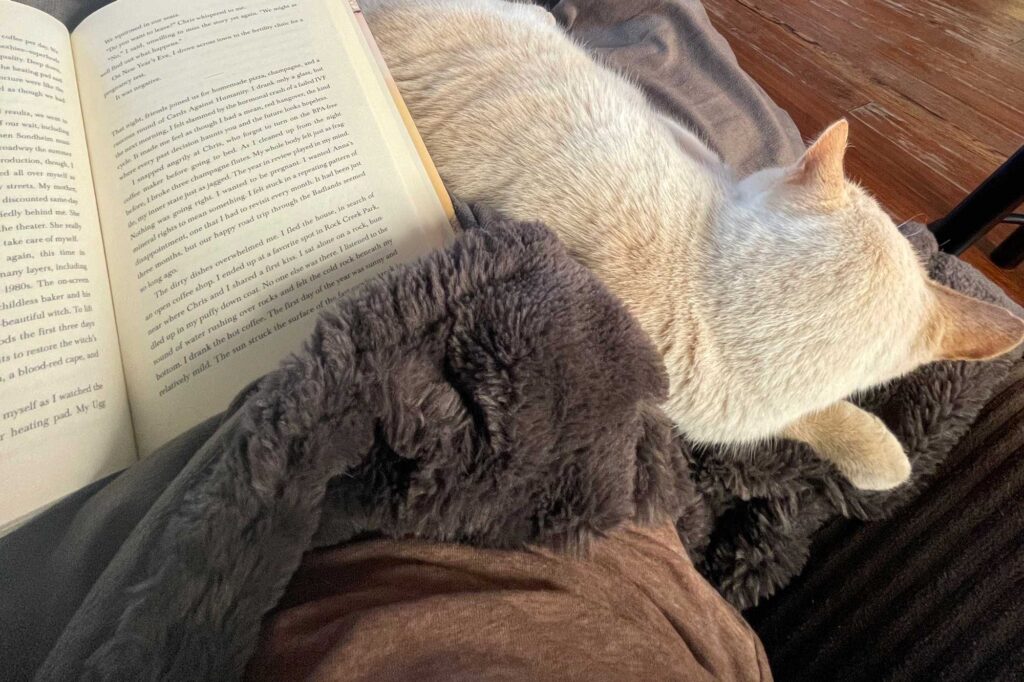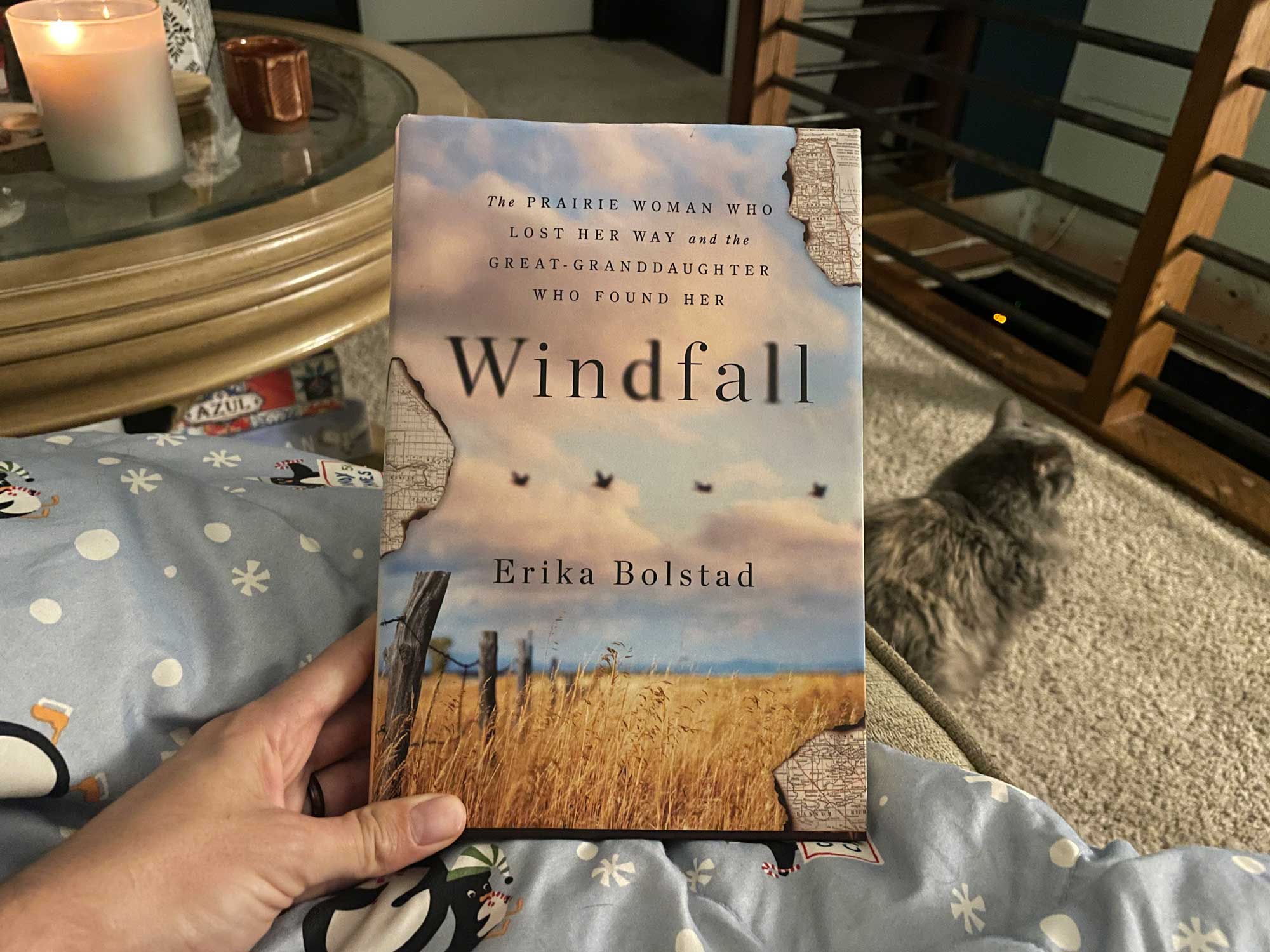Windfall covers a universe inside North Dakota.
Alas, I only have 200 words.*
So I’ll focus on what I saw as the three bravest moves of the author, Erika Bolstad.**
Brave move #1: Centering women and Indigenous stories. The experience of women in the northern prairie and towns got star treatment — not usually the case in stories of Plains settlers. It made me want to cheer every time she brought a scene of women’s lives to life.
Furthermore, every story of a place reached back to a precise Indigenous history. I sense it was sometimes harder to find accurate information about people lost to genocide as it was to find records of individuals, and I know it must have been a challenge to write Indigenous stories smoothly into a generations-spanning memoir about Scandinavian settlers. Yet she did it. And yes, in a book about land rights published in 2023, an absence of land acknowledgement would have been loud. But I always felt like Erika was giving words to the often-overlooked people because it’s important and makes the story better, not because she had to.

You know, I started this book in the spring, then let a friend borrow it in June to review it for a One Reads opportunity, and then finally got it back in October. I realize it was meant to be, that for some reason cats and cozy blankets flock to this book. Now’s the time to read it, folks!
Brave move #2: Erika’s vulnerability. She is present in the book not only as a professional journalist, but also a woman who is maturing and learning over the course of a decade. The same heart that pursued her ancestor’s story and her family’s mineral rights was simultaneously trying hard to make a family. Heartbreak and complications were real all around. Erika’s personal story set Windfall apart from so many environmental books out there and placed it firmly in the league of my favorites such as Terry Tempest Williams and Jon Krakauer.
Brave move #3: The way she wrote about Anna in the years before the insane asylum and inside of it made my heart break so much for every person, but especially my great-grandmother whose own miscarriages and ill treatment in psych wards in the 60s had more parallels to Anna than I would have expected. Erika found empathy and love for this woman she’d never met — and all women of this earlier time, really. Reading this was an act of healing for me and my recently deceased mother figure, and an inspiration for tackling my family’s own story someday.
I’ve often wondered how I would handle weighty issues, whether writing about place or myself. When I’m ready, I’ll study Windfall: The prairie woman who lost her way and the great-granddaughter who found her.
*Fortunately, I made the 200-word rule for Last Words, and now I have broken it, and I feel no guilt.
**It doesn’t surprise me at all that Erika showed bravery. I met her during an Institute for Journalism and Natural Resources trip in North Dakota. She was a force then, she’s a force now, I’m proud to say we’re friends, and you should definitely sign up for her newsletter.

Leave a Reply
You must be logged in to post a comment.